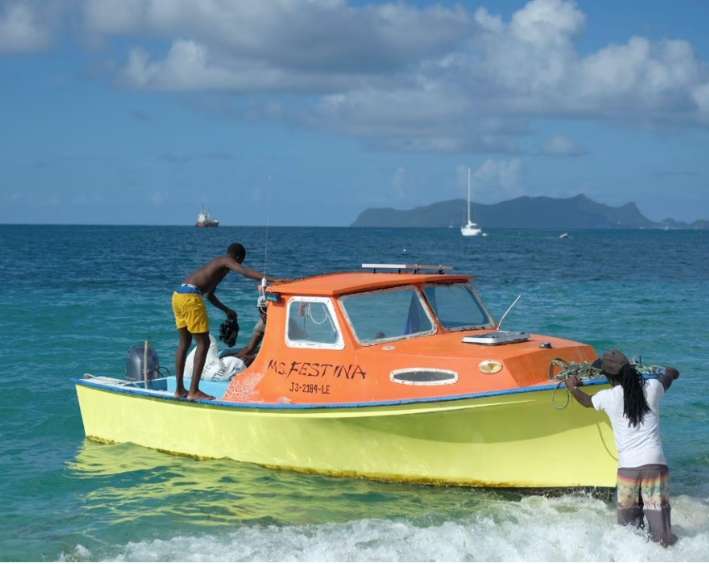Wider Caribbean Protection Pact Enacted.
The Wider Caribbean region, a tapestry of islands and coastal nations intrinsically linked to the ocean’s embrace, has officially launched the Ocean Coordination Mechanism (OCM). This landmark initiative signifies a pivotal moment in the region’s pursuit of sustainable marine resource management, recognizing the critical interconnectedness between ocean health and economic prosperity. The OCM embodies a collaborative spirit, bringing together governments, intergovernmental organizations, and stakeholders to address the complex challenges facing the Caribbean’s marine environment. It serves as a linchpin for coordinated action, ensuring a harmonized approach that balances environmental protection with the sustainable development needs of the region.
The Caribbean’s dependence on its marine resources is undeniable. Tourism, fishing, and maritime trade form the bedrock of many island economies, generating livelihoods and driving economic growth. However, these vital sectors face mounting pressures from climate change, pollution, and unsustainable fishing practices. Rising sea levels, ocean acidification, and increasingly frequent and intense extreme weather events pose existential threats to coastal communities and ecosystems. Pollution from land-based sources, including plastics and agricultural runoff, degrades water quality and harms marine life. Overfishing depletes fish stocks, jeopardizing food security and the long-term viability of the fishing industry. The OCM recognizes these interconnected challenges and aims to provide a framework for collective action, fostering resilience and ensuring the sustainable use of ocean resources for generations to come.
The OCM’s activation under the ProCaribePlus Project represents a culmination of decades of regional cooperation in ocean governance, building upon the foundation laid by the Caribbean Sea Large Marine Ecosystem (CLME) approach. The initiative strives to create a unified platform for regional collaboration, empowering Caribbean nations to take ownership of their marine destiny and implement strategic, sustainable management practices. The mechanism aims to streamline efforts, avoid duplication, and maximize the impact of interventions, fostering a more efficient and effective approach to ocean management. By facilitating partnerships and promoting knowledge sharing, the OCM seeks to leverage the collective expertise and resources of the region to address critical ocean-related challenges.
Central to the OCM’s mandate is the development of a regional Ocean Action Programme, a comprehensive roadmap outlining concrete steps to protect and restore marine ecosystems, enhance resilience, and promote sustainable ocean-based economies. This program will serve as a guiding document, aligning national and regional efforts towards common goals and objectives. The OCM will also launch a periodic report on the “State of the Marine Environment and Associated Economies,” providing a comprehensive assessment of the region’s ocean health and its economic implications. This report will serve as a valuable tool for policymakers, informing decision-making and guiding future actions. A key focus of the OCM is strengthening climate-resilient, ocean-based economies, particularly for Small Island Developing States (SIDS). Recognizing the unique vulnerabilities of SIDS to climate change impacts, the mechanism aims to support the development of sustainable and diversified ocean economies, enhancing their resilience and adaptive capacity.
The OCM’s launch has garnered significant regional and international support. Seventeen states and nine intergovernmental organizations (IGOs) have already signed a Memorandum of Understanding (MoU), formalizing their commitment to the initiative. The Bahamas and the Intergovernmental Oceanographic Commission (IOC) of UNESCO recently joined the ranks of signatories, further solidifying the OCM’s growing momentum. The ambition is to expand membership to encompass 32 states and territories and 11 IGOs, including several UN agencies, creating a truly inclusive and representative regional platform. The CARICOM Secretariat, a staunch advocate for regional integration and sustainable development, has played a pivotal role in championing the OCM, recognizing its importance in strengthening Caribbean ocean governance.
High-level officials across the region have expressed strong support for the OCM, underscoring its significance in safeguarding the Caribbean’s marine heritage and ensuring the region’s long-term prosperity. Leaders from Antigua and Barbuda, St. Kitts and Nevis, Dominica, and Belize have all voiced their commitment to sustainable ocean management, recognizing the crucial link between healthy oceans and thriving economies. Dr. Didacus Jules, Director General of the Organization of Eastern Caribbean States (OECS), lauded the initiative as a crucial step in preserving marine ecosystems and bolstering regional economic resilience. With the global spotlight increasingly focused on the sustainable management of marine resources, the Caribbean’s proactive approach through the OCM positions the region as a leader in integrated ocean governance, setting a compelling example for other regions to emulate. The OCM represents a bold and ambitious step towards a future where the Caribbean’s ocean resources are managed sustainably, ensuring the health of the marine environment and the prosperity of the people who depend on it.
Share this content:












Post Comment